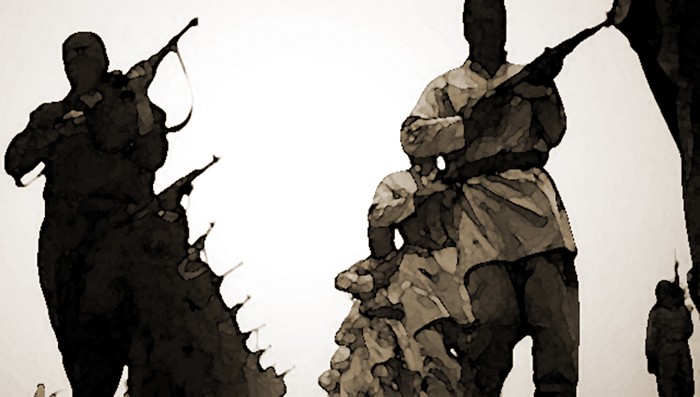
If a society is as evil as its most vile criminals, how can it claim to have the right to punish them?

"The hangman is a disgrace to any civilised country."
-- Arthur Koestler
"I realise that I cannot stand by silently as my government executes its citizens. If I do not speak out and resist, I am an accomplice."
-- Helen Prejean, Dead Man Walking: The Eyewitness Account of the Death Penalty That Sparked a National Debate
"To kill for murder is an immeasurably greater evil than the actual crime itself. Judicial murder is immeasurably more horrible than one committed by a robber."
-- Fyodor Dostoyevsky, The Idiot
The moral order, in almost all societies, is based on a bipartisan contract. The two contracting entities are the individual and society in general. The nature of the contract, as has been theorised by Friedrich Nietzsche in his book, The Genealogy of Morals, is the contract between a lender and a borrower. Society gives the individual the credit of morality by raising him or her safely till the person becomes an adult. That’s why most societies do not expect children to be moral or have full legal responsibility because they have not received the moral credit that is due to them.
Human beings are considered adults at 18 in a large number of countries and that is when governments stop paying child support. In Iran and Saudia Arabia, a female minor becomes a major at the age of 8 and a male child becomes an adult at 14. That is when the onus of legal responsibility is transferred to the individual.
A society gives a moral credit, through its institutions of child support, safety, education, healthcare, etc, till a child becomes an adult. Now a society can legitimately expect the adult citizen to return the debt by acting like a good borrower. By being safe for other citizens and children an adult citizen is paying back a debt. The same moral contract exists between nations as well. When this contract collapses, the moral order is suspended and societies and nations are considered at war. They no longer have to honour any moral contract, which is the basis of the social contract.
If a society has not been raising all the children with the same sense of safety, those children do not owe anything to society. Those children who have grown up in a state of nature, not protected by any moral contract, do not owe anything to society when they reach adulthood. It is because of this legal logic that Western governments sometimes take away the children from their parents and raise them in shelter homes. These governments, as the institutional managers of societies do not want anyone to be raised without having received the credit of safety, education, child support and healthcare.
The entire modern system of punishment is based on this system of equivalence. Punishments are precise calculations of what an individual owes society when an individual proves himself to be a bad borrower of safety and security. To make the bad borrower pay, a society will take something back: years out of his or life, his or her life, amputations, fines, and flagellations, etc.
The above discussion means that a society has to first establish its right to extract punishment by giving a credit of safety and security to its citizens. If that credit does not exist, a society has no right to ask an individual to return the debt of morality.
It is a state of nature: the war of all against all. Based on the above analysis, I assume that the present trend in Pakistan where individuals are going to be executed is not going to establish a new moral order. It will further erode the existing moral order because it will brutalise the entire fabric of society. Now the sate will also do what it does not want anyone else to do -- i.e. kill human beings.
If killing human beings is an evil act, the state cannot demand moral behaviour by flaunting its own impunity to commit the same evil act. In this way, the state will only establish a law of exception. If the state is above the moral order, then the citizen will also try to be above the moral order just to feel some sense of dignity.
If a society is as evil as its most vile criminals, how can it claim to have the right to punish them? Because of its desire to punish in the crudest forms, a society displays its own fragility and bestial nature:
"If the power and the self-confidence of a community keeps growing, the criminal law grows constantly milder. Every weakening and profound jeopardising of the community brings the harsher forms of criminal law to light once more. The "creditor" always became proportionally more human as he became richer. Finally, the amount of his wealth itself establishes how much damage he can sustain without suffering from it. It would not be impossible to imagine a society with a consciousness of its own power which allowed itself the most privileged luxury which it can have -- letting its criminals go free without punishment. "Why should I really bother about my parasites," it could then say.
"May they live and prosper -- for that I am still sufficiently strong!" Justice, which started by stating, "Everything is capable of being paid for, everything must be paid off" ends at that point, by covering its eyes and letting the person incapable of payment go free -- it ends, as every good thing on earth ends, by doing away with itself. This self-negation of justice -- we know what a beautiful name it calls itself -- mercy. It goes without saying that mercy remains the privilege of the most powerful man, or even better, his beyond the law."
-- Friedrich Nietzsche, On the Genealogy of Morals.